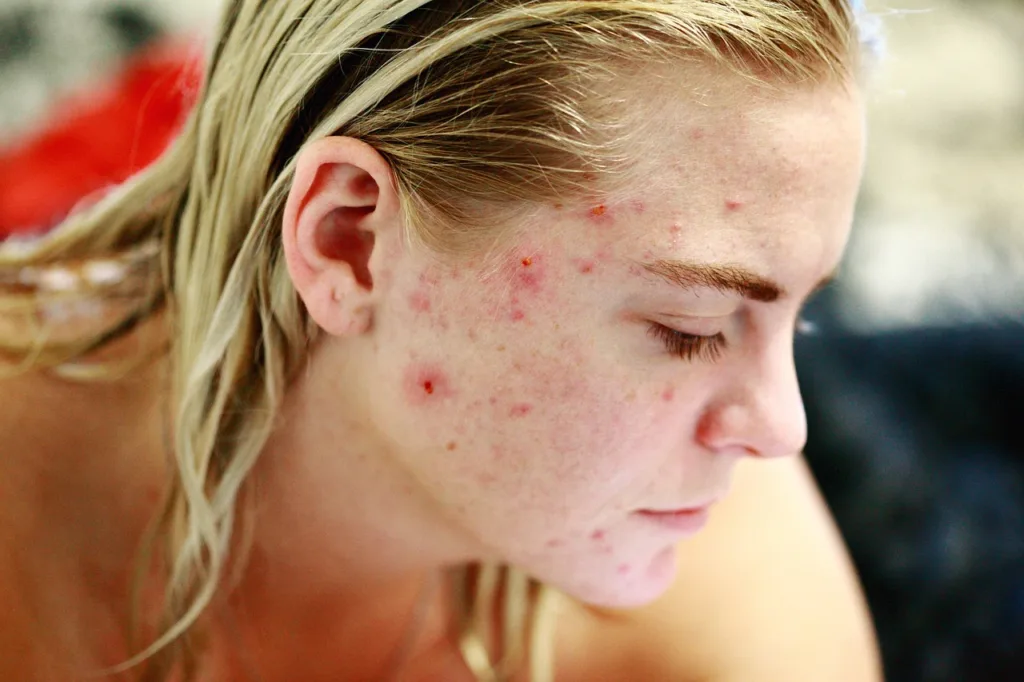Hormonal acne can be difficult to manage, but there are helpful techniques you can use to reduce symptoms. As a dermatologist, I suggest the following advice:

Table of Contents
Hormonal Acne:
Consistent skincare routine
To prevent clogging of pores, it is essential to cleanse your skin twice a day using a mild cleanser. Choose non-comedogenic products to unclog your pores.
Control Your Stress
Stress can worsen hormonal imbalances and cause breakouts. Incorporate stress-relieving activities such as exercise, meditation, or deep breathing techniques into your daily routine.
Use topical treatments
“Over-the-counter topical treatments with ingredients like salicylic acid, benzoyl peroxide, or retinoids can be beneficial in managing acne by unclogging pores and reducing inflammation,” says Dr.
Take good care of your skin
Avoid picking or scrubbing vigorously at your acne scars as this can increase inflammation and cause scarring.
Explore prescription medications
Consult a dermatologist if over-the-counter remedies don’t work. They may recommend oral or topical medications, such as spironolactone, antibiotics, or birth control pills, to manage hormone levels and treat acne.
Maintain a balanced diet
Certain foods can make acne worse in some people, even if nutrition isn’t the only factor that causes acne. As you favor a diet rich in fruits, vegetables, and whole grains, you may want to reduce your intake of dairy products, refined sugar, and high-glycemic foods.
Stay hydrated
Drinking enough water is important to support healthy skin. To keep your skin hydrated, make sure you consume plenty of water throughout the day.
Stay away from potential triggers
Determine if products, makeup, or environmental variables (such as certain skincare products) can make your acne worse and try to avoid them.
Get enough sleep
To promote hormone balance and general health, aim for 7-9 hours of good sleep per night.
Be Patience
It’s important to be patient and follow your skincare routine and treatment plan religiously because improvements in hormonal acne may not be immediate. It may take weeks or months to see significant results.
Switch treatment
It is important to remember that each person may react differently to treatment, so what works for one person may not work for another.
See a dermatologist.
If you’re having trouble controlling your hormonal acne, see a dermatologist for professional advice. They can provide you with a personalized treatment plan and offer advice based on your unique needs.
read also :10 Method to Prevent Acne

2 thoughts on “Treat hormonal acne : Here are 12 tips”